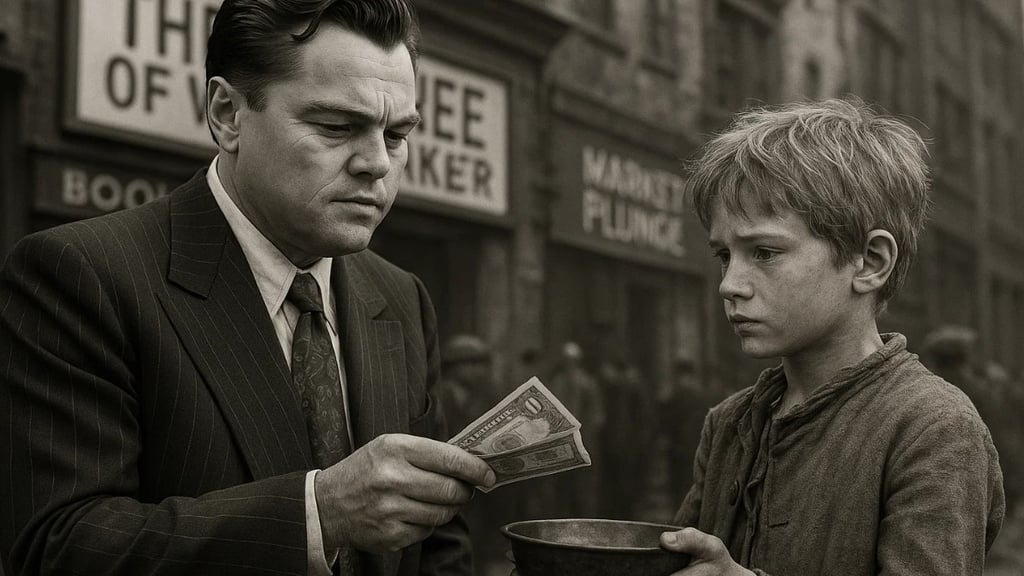Gambling Watchdog Springs Another Leak — And Everyone Pretends Not to Know Why
As Labour readies its Budget, the GC’s latest “accidental” disclosure lands perfectly in a left-wing paper — while journalist Rob Davies insists his reporting has nothing to do with Matt Zarb-Cousin or any campaigner influence.
HORSE RACINGPOLITICS
Ed Grimshaw
11/13/20253 min read


The Gambling Commission (GC) was once the sort of regulator that barely made a sound. Now it behaves like a colander in a rainstorm — unable to hold water and strangely selective about where the drips fall. And, curiously enough, those leaks seem to end up on the pages of friendly left-leaning newspapers at the exact moment the Labour Government prepares its first Budget.
Coincidence? Only if you believe bookmakers always lose.
This week’s leak concerned a bookmaker that allegedly submitted documents containing hidden white-on-white text linking it to offshore transactions. The Guardian published the story with all the thrill of a man discovering buried treasure in his own allotment. The bookmaker, understandably startled at being publicly scalped without even a completed investigation, has responded by hiring half the legal profession. For his part, Rob Davies has consistently rejected any suggestion that his reporting is influenced by Matt Zarb-Cousin or his campaigning work, insisting his stories arise solely from independent journalistic sources and not from any coordinated effort.
Davies somehow had the scoop before the operator’s lawyers had even finished saying “we strenuously deny these allegations.Within hours of the GC’s internal stumble, there it was: front-page scandal, with all the narrative trimmings — anonymous sources, worried regulators, high-rolling VIPs fleeing to offshore lairs like tax-dodging Bond villains.
Now you can believe that’s just good journalism. Or — and stay with me here — maybe, just maybe, someone at the Gambling Commission is doing more leaking than a Tory WhatsApp group in an election week
But the allegation itself is almost secondary. What matters is the timing, the choreography and the cast of supporting actors who, once again, appear on cue.
The anti-gambling lobby: not exactly neutral referees
Whenever one of the GC information "briefs" hits the press, the same lobbyists appear faster than a steward’s inquiry at Plumpton. Matt Zarb-Cousin, the director of Clean Up Gambling, ex-Labour adviser and ever-present media voice on gambling harm.
He is articulate and driven but sometimes misinformed. But the idea that the SMF are disinterested volunteers floating above the political fray is fiction of the purest grade.
Zarb-Cousin, for example, is also co-founder of Gamban, a commercial self-exclusion software company. That’s right: the man calling for tighter gambling rules also runs a business that becomes more valuable the harsher the regulatory landscape becomes.
It’s like campaigning against traffic while owning shares in a speed-camera company.
And then there’s the uncomfortable fact that, through the complex ecosystem of harm-reduction funding, advocacy bodies and treatment partners, the very organisations pushing the harshest reforms often benefit indirectly from levy-linked money circulating through the system. Perfectly legal. Perfectly normal. But let’s not pretend everyone involved is living on fresh air and moral purpose.
Which is why the next point lands with such force:
Linking gambling taxes to child poverty is the act of political mercenaries — people who don’t genuinely care about either, but find the narrative pays their wages.
If gambling taxes fixed poverty, Britain would have solved it in 1961. But it’s a superb political tactic: demonise the activity, manufacture urgency, then claim the proposed tax hike is a humanitarian miracle waiting to happen.
Meanwhile, Labour prepares its first Budget
With Rachel Reeves searching for revenue like a truffle pig in a drought, a well-timed scandal about offshore gambling is extremely convenient.
First you create moral outrage.
Then you announce a tax rise.
Then you claim it’s all “for the children” — who, incidentally, will never see a penny of it because the Treasury never hypothecates anything except blame.
And now, the central problem: a leaking regulator
The GC holds the most sensitive commercial information in the entire gambling sector. Section 30 of the Gambling Act is clear: leaking it is illegal. Yet here we are again:
A politically useful leak.
In an ideologically sympathetic newspaper.
Just before a major fiscal event.
Miraculously aligned with the messaging of professional campaigners who have clear political and commercial interests in stricter gambling policy.
This is not transparency.
This is regulatory opportunism with a PR department.
The consequences? All bad.
Commercial integrity collapses. Companies are smeared before investigations conclude.
Regulatory integrity collapses. The GC starts to look like it’s taking dictation from activists rather than administering law.
Public trust collapses. People cannot trust a regulator that leaks strategically to build political momentum for predetermined outcomes.
The question Parliament must now ask
Who exactly is running the direction of UK gambling policy?
The regulator?
The Labour Government?
Or a well-organised ecosystem of activists, consultants and commercial harm-reduction organisations who gain prominence, funding or customers every time a new panic erupts?
Because at the moment, it looks like the GC has become a sort of ideological postman — delivering confidential material to whichever campaigner or newspaper will shout loudest.
Final verdict
Child poverty will not be solved by taxing a Lucky 15.
Gambling harm will not be reduced by leaking confidential documents to the press.
And policy certainly shouldn’t be shaped by people who stand to profit, directly or indirectly, from the solutions they recommend.
If the Gambling Commission wants to be taken seriously, it must stop behaving like a political wheatsheaf and start behaving like an impartial regulator. Until then, the industry will keep asking the same question:
Why is the watchdog barking on one side of the political fence?
And more importantly:
Who is feeding it?
